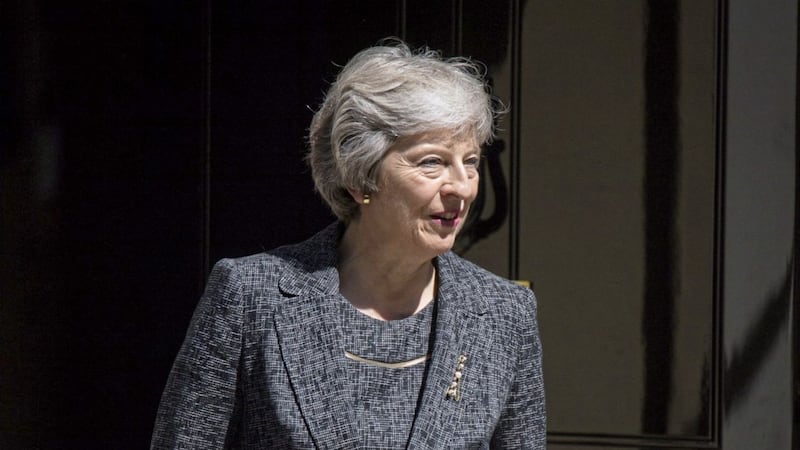The results of last week’s poll released on Monday are not the first to show the ‘Brexit effect’ on people’s political preferences.
The poll found that if the UK leaves the EU 52 per cent of people here would vote for a united Ireland. If there was a hard border the figure goes up to 56 per cent. Of those from a ‘nationalist heritage’, an astonishing 94 per cent would vote for a united Ireland in the event of Brexit.
The findings are in line with other polls taken in the last few months which illustrate that the DUP’s stupidity in blocking an accommodation on the border and supporting leaving the customs union and the single market has produced the opposite of their political aims. The indications are that a substantial number of unionists – though far from a majority – would prefer Irish unity to Little England.
More importantly however, what these polls confirm is the final alienation of northern nationalists from the British government which has been under way over eight years watching and enduring the consequences of ever closer collaboration with unionists culminating in the dirty deal May struck with the DUP last year. That deal was merely the inevitable destination of the direction of travel of Conservative governments since 2010. Even before the 2010 election, solely to serve the interests of the Conservative party, David Cameron wilfully abandoned the neutrality on the north’s politics his predecessor John Major had carefully constructed with Peter Brooke from 1990.
Brooke’s statement that Britain had no selfish strategic or economic interest in Ireland, repeated formally in the 1993 Downing Street Declaration, was critical in persuading the IRA to end its campaign. Since 2010 the British government has jettisoned that commitment for selfish political and electoral reasons.
Desperate to get into government at any cost after thirteen years of Labour, Cameron demonstrated his total ignorance of politics here and joined up with the dying UUP. He also fought every seat in the UK except two; north Belfast and Fermanagh/South Tyrone hoping to earn the gratitude of the unionist candidates there. Having backed the wrong horse he then cynically swung to the most toxic party in the UK bar none, the DUP, and granted their every wish in his tussles with the hopeless, hand-wringing, coalition Lib Dems.
He sent a succession of dimwits over here as proconsuls with one simple instruction: give the DUP anything they want. The worst example of this injunction was the abolition of 50/50 recruiting to the police. As a result, last year only 20 per cent of new police recruits were Catholic and 77 per cent Protestant – exactly what the DUP want. Catholic recruits also leave the PSNI in greater numbers than Protestant. Great. A few more years of that and we’ll be back to 90 per cent Protestant and 100 per cent unionist. At the behest of the DUP dullard proconsuls have blocked movement on legacy, coroners’ inquests, equality of marriage, LGBT rights, and so on.
Cameron, and then this current preposterously ineffectual, beleaguered prime minister have dismantled brick by brick the crucial elements of the Good Friday Agreement and set aside the pledges built into the Downing Street Declaration without the slightest concern about the damage they are doing. The abandonment of neutrality between the two communities here has destroyed the ability of any British government to participate in a talks process or cooperate meaningfully with the Irish government, a requirement of the GFA mechanisms. Theresa May’s refusal at the recent British-Irish Intergovernmental Conference to meet any Irish minister or to allow a joint press conference with the NIO’s present political nonentity, or even provide a room for Irish ministers to meet the press, showed how deeply in thrall to the DUP she is.
As Britain ignores the EU Charter of Fundamental Rights and leaves the European Court of Justice, this Conservative government begins to unravel the network of rights-based provisions in the GFA. It was never envisaged that the final arbiter of human rights and equality here would be the UK Supreme Court. Nationalists looked to the international clout of the EU as a final court of appeal.
Northern nationalists turned their backs on Westminster in last year’s election when the British kicked away these two pillars of the peace process; neutrality, and EU guarantees of rights and equality.









